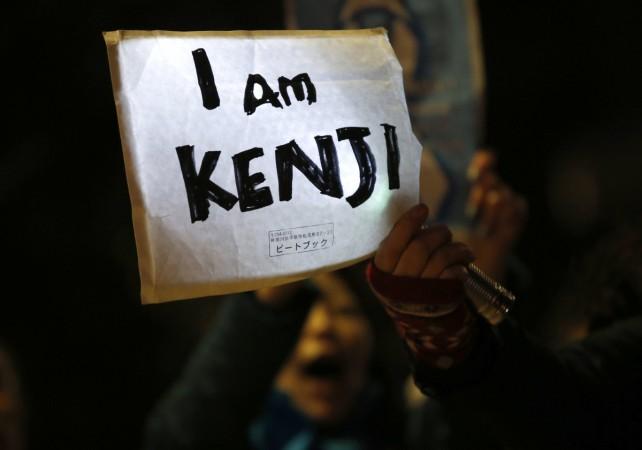
Even as Japan struggles to save hostage Kenji Goto from an imminent threat to his life at the hands of Islamic State (IS) militants, which has already executed one Japanese hostage, China's Global Times newspaper has blamed Japan and the United States for the crisis.
An op-ed in in the newspaper, affiliated to state newspaper People's Daily, has faulted Japanese Prime Minister Shinzo Abe for his handling of the hostage situation. Similarly, in an article titled 'viewpoint', , a Chinese anti-terror expert in the same publication chided the US for its 'no-ransom' policy.
"Japan's high-profile role in the global anti-terrorism cooperation has made Japan a victim this time," the 'viewpoint' article, published on Monday, said, while deriding Japan for not having the 'capability' to cope with the situation.
"To be honest, there is nothing wrong with cracking down on the forces of IS, but Japan does not have enough capability to cope with emergent situations when tragedies like this happen."
The article was published on the same day as an editorial titled 'Abe's strategy clearer after hostage crisis' took potshots at Japan for perceiving China as an 'imaginary enemy'.
Japan "is plagued with a terrible mess in its national strategy. It misperceives China as an imaginary enemy," the editorial said, while blaming Japan's allegiance to the US for the death of hostage Haurna Yukawa by the ISIS.
"Tokyo's ultimate goal is said to be getting rid of US control, however, it is forced to defer to the US due to its confrontation with China. The killing of the Japanese hostage is more or less the price that Japan has paid for its support to Washington."
In Monday's 'viewpoint' article, Li Wei, anti-terror expert at the China Institutes of Contemporary International Relations, also put blame on America's role in the hostage situation.
"Tokyo could never meet the requirements of IS, no matter whether they demanded $200 million in ransom, or a swap for a female jihadist imprisoned in Jordan. That is because the US, who is now dominating the global anti-terrorism campaign, insists that no country should yield to terrorist blackmail by offering ransoms or giving in to their demands. And the last thing Japan would do is run contrary to its ally, despite its willingness to be flexible in this hostage incident," the article read.
China and Japan have had strained relations due to territorial disputes in the East China Sea, with both taking claim over strategic islands.

















